3. Auto-Flattery
Video
Understanding Your Pet Earthling
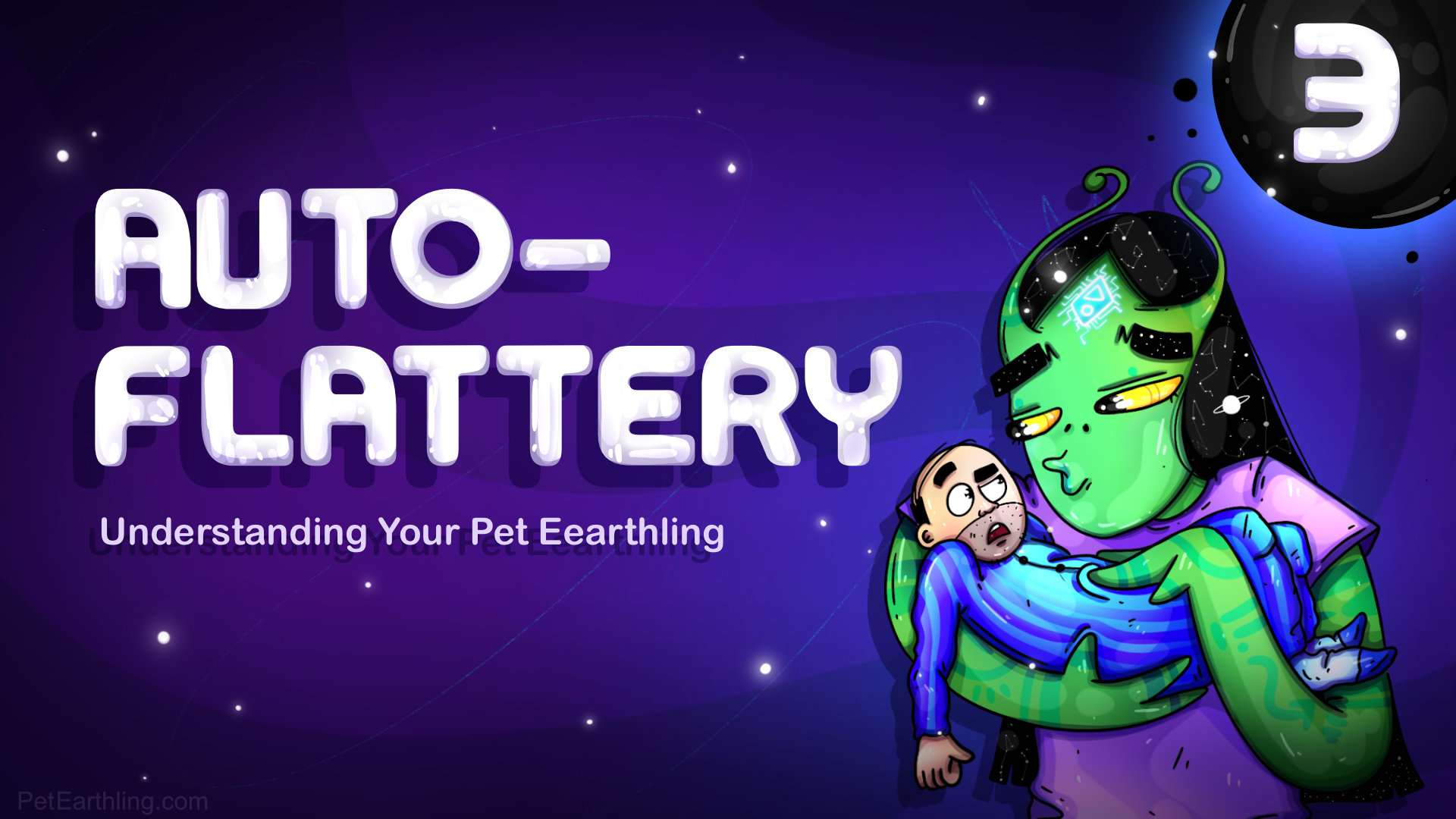
A happy pet earthling is such a
delightful companion to own.
The secret to what makes
them so happy, confident,
and adorable . . .
delightful companion to own.
The secret to what makes
them so happy, confident,
and adorable . . .

is that they have no idea
how wrong they are
about so many things.
how wrong they are
about so many things.

To protect their
adorable sense of self-
worth, earthlings have
evolved a clever defense.
When confronted with
failure or something they
do not understand,
adorable sense of self-
worth, earthlings have
evolved a clever defense.
When confronted with
failure or something they
do not understand,

most earthlings simply
choose the explanation that is
most flattering to themselves.
choose the explanation that is
most flattering to themselves.
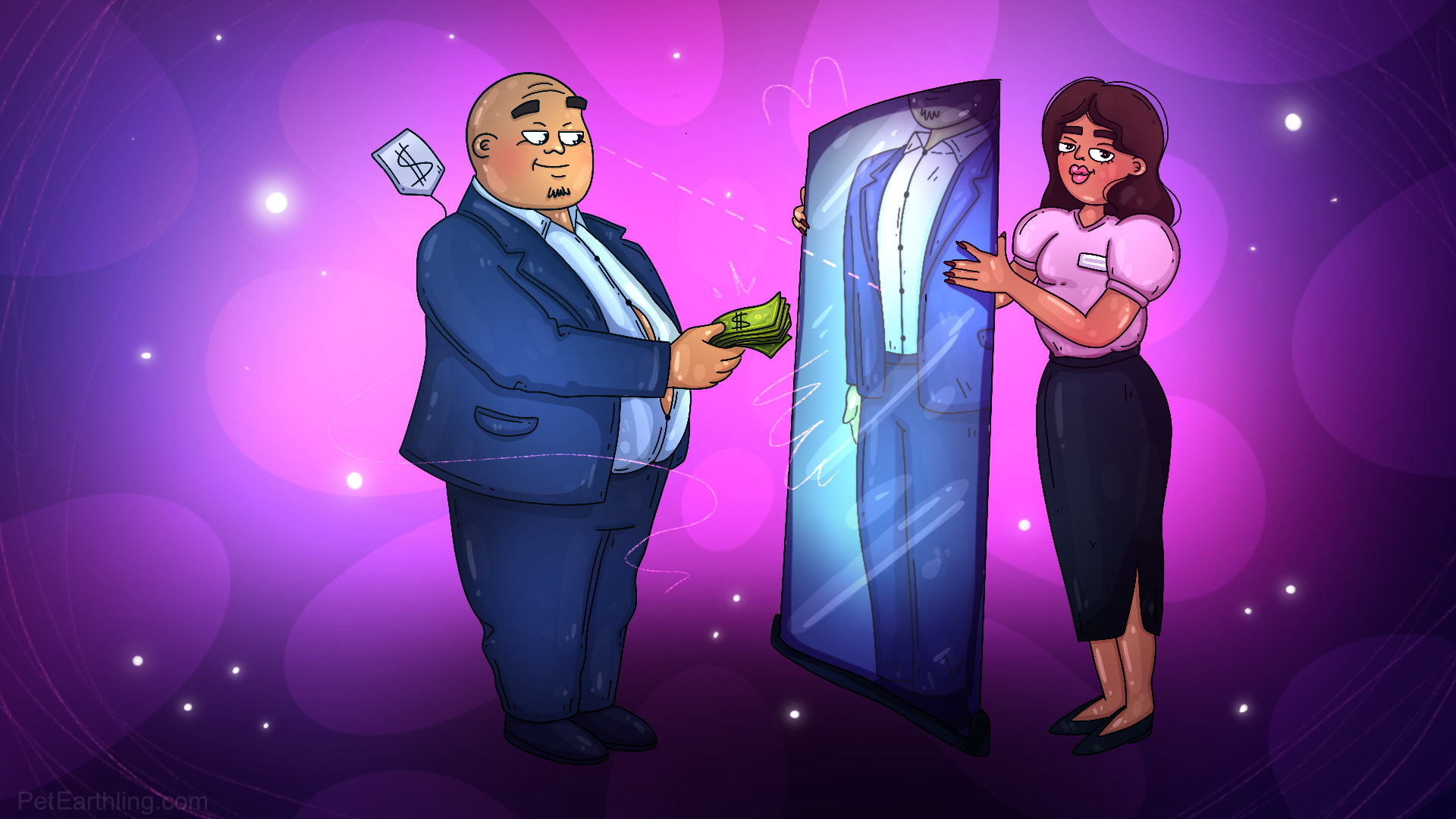
For example, if they
lose in a competition,
they could choose
to believe they
were not the
most talented,
lose in a competition,
they could choose
to believe they
were not the
most talented,

or they could choose to believe the judges were
stupid crater-dwellers who were just jealous.
stupid crater-dwellers who were just jealous.
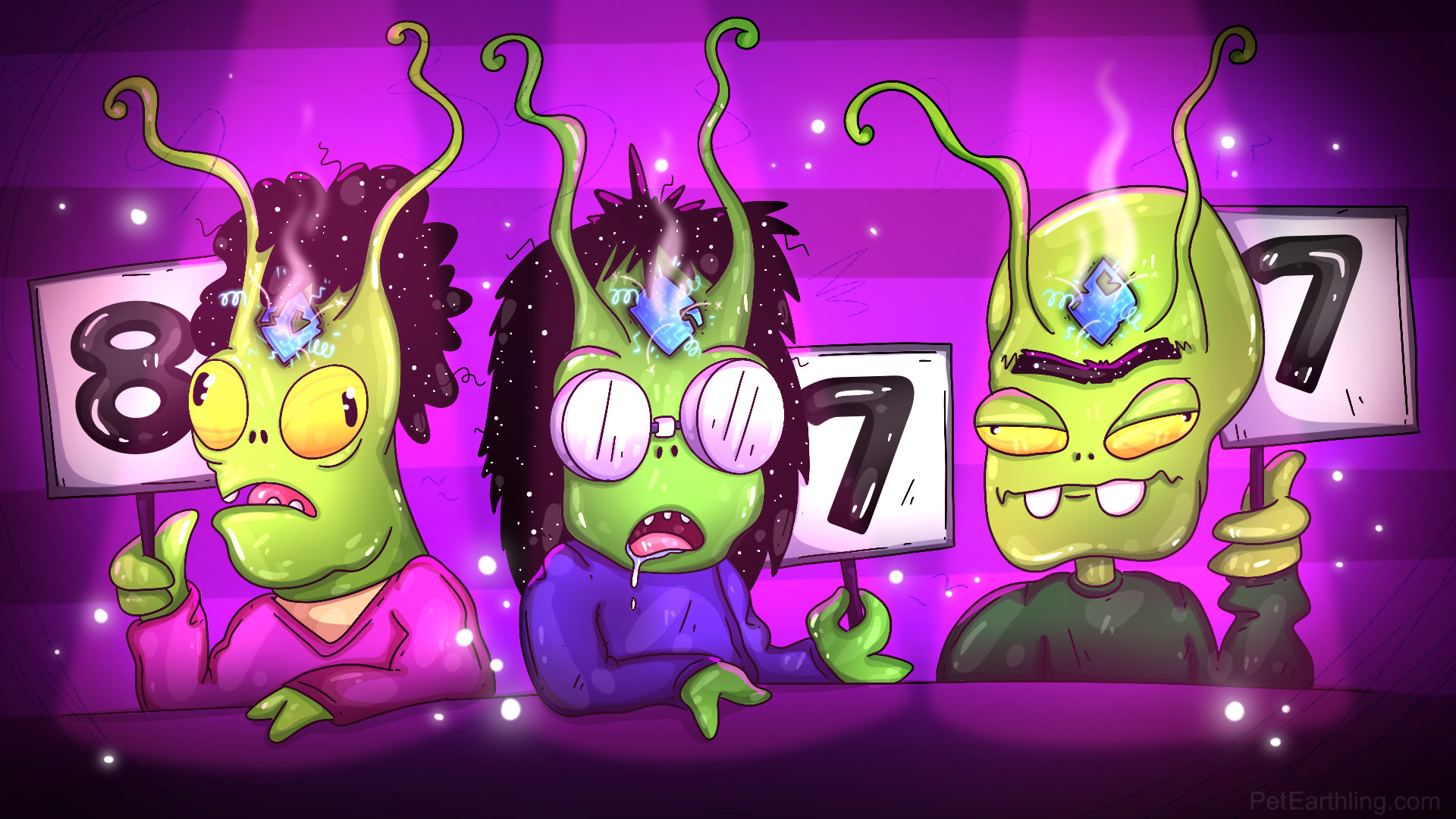
If earthlings have an assumption about the world,
but then they are confronted with a scientific explanation
that disproves it, they could choose to believe
they were wrong,
but then they are confronted with a scientific explanation
that disproves it, they could choose to believe
they were wrong,
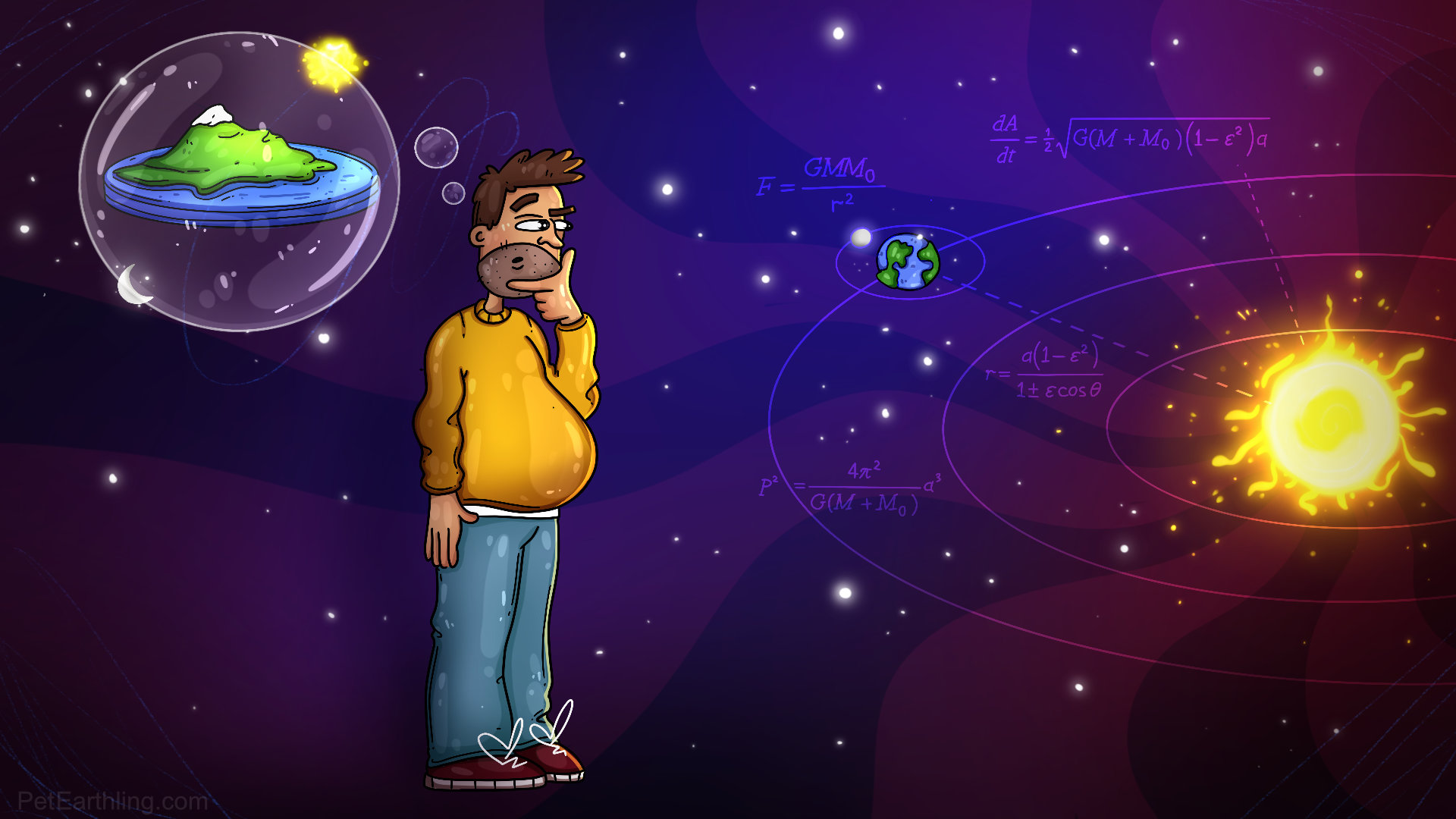
or they could choose to believe that
scientists are flaccid rectal worms who
wasted years of their life studying
and researching and
completely missing
the truth that
they perceived
instantly.
scientists are flaccid rectal worms who
wasted years of their life studying
and researching and
completely missing
the truth that
they perceived
instantly.
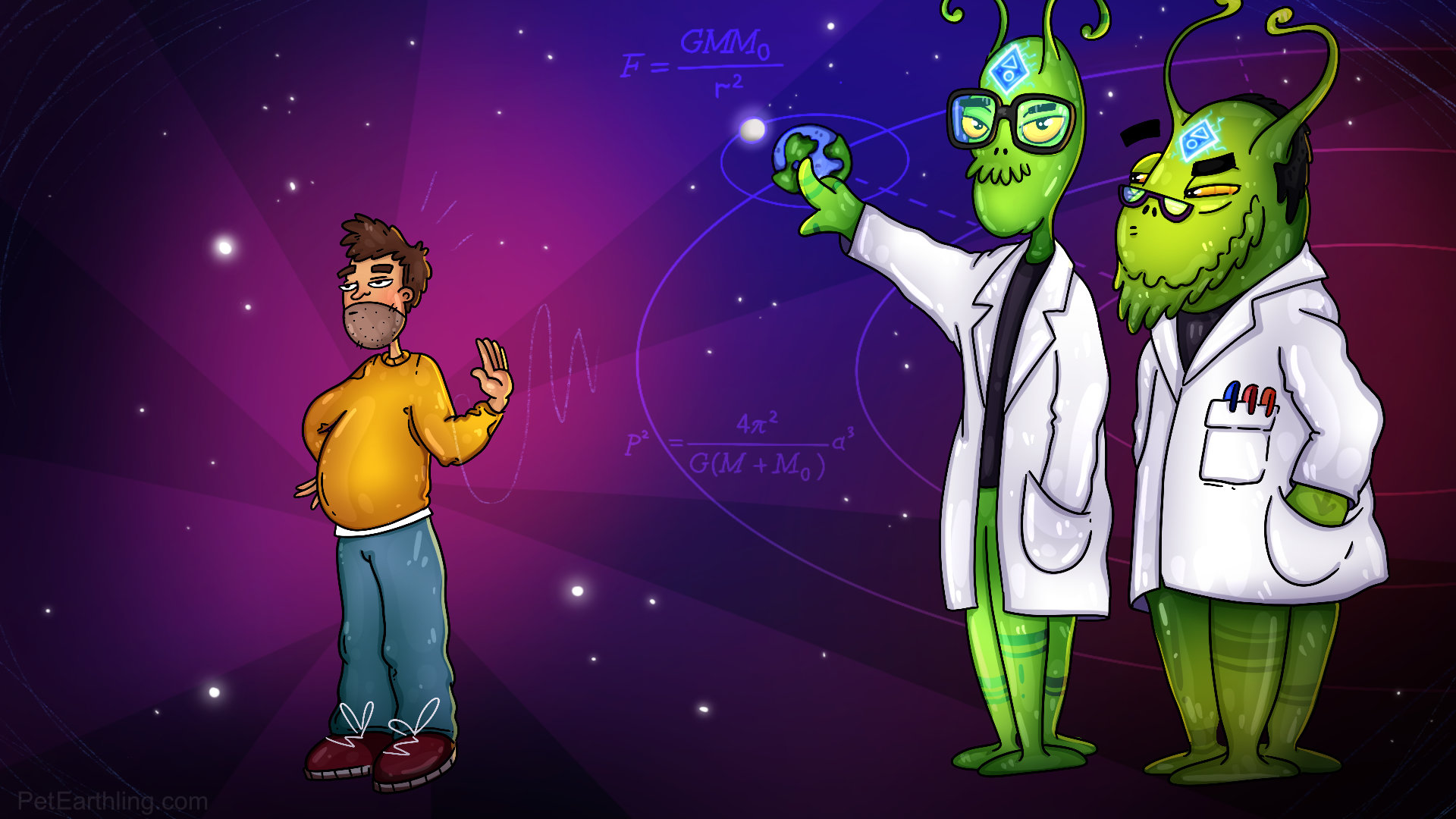
By choosing the most
flattering explanation,
your pet earthling can protect
their vulnerable ego within a
hard defensive armor.
flattering explanation,
your pet earthling can protect
their vulnerable ego within a
hard defensive armor.
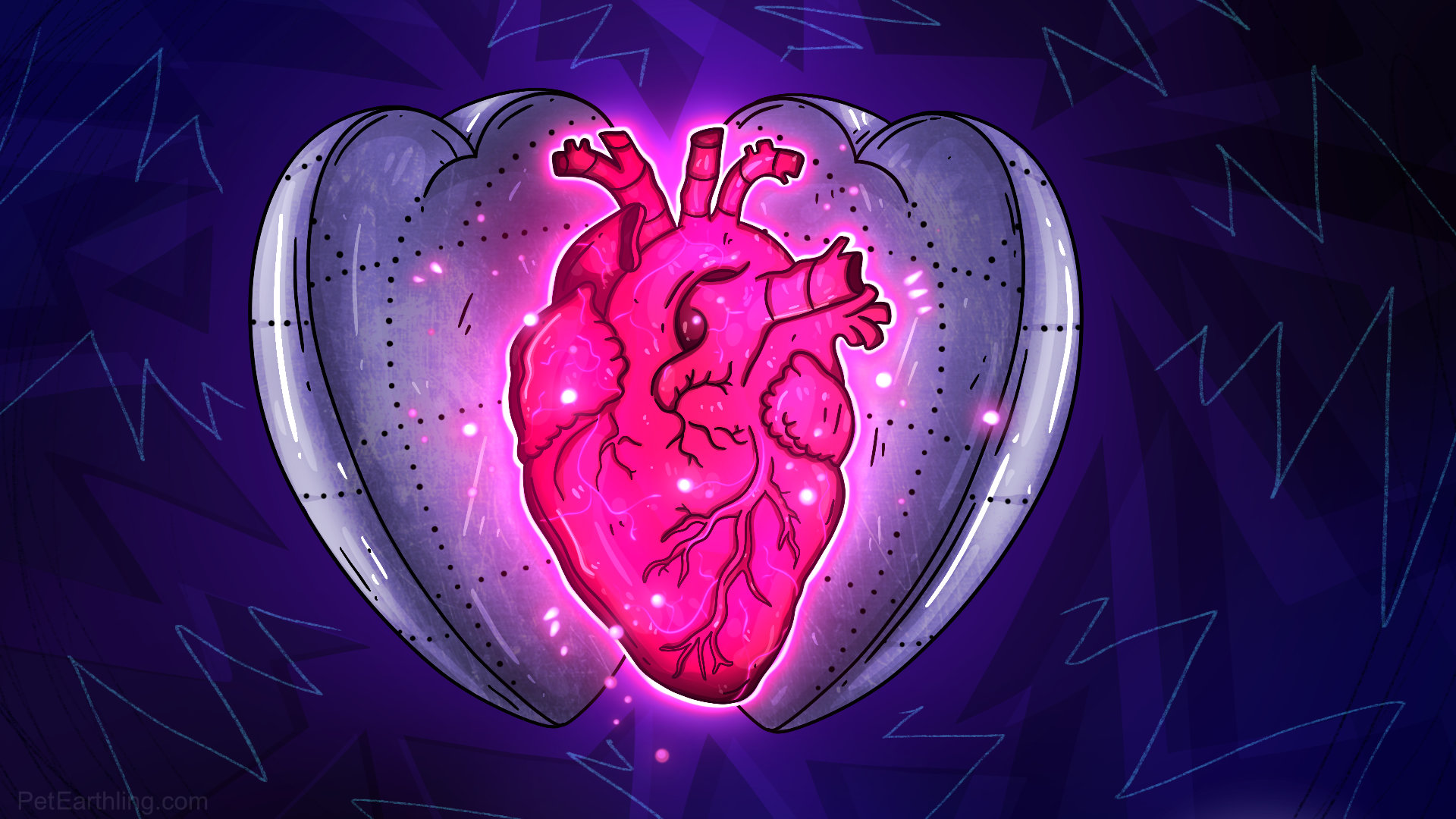
Earthlings have also cleverly figured out that they
can prove their case by simply not looking for any evidence.
can prove their case by simply not looking for any evidence.
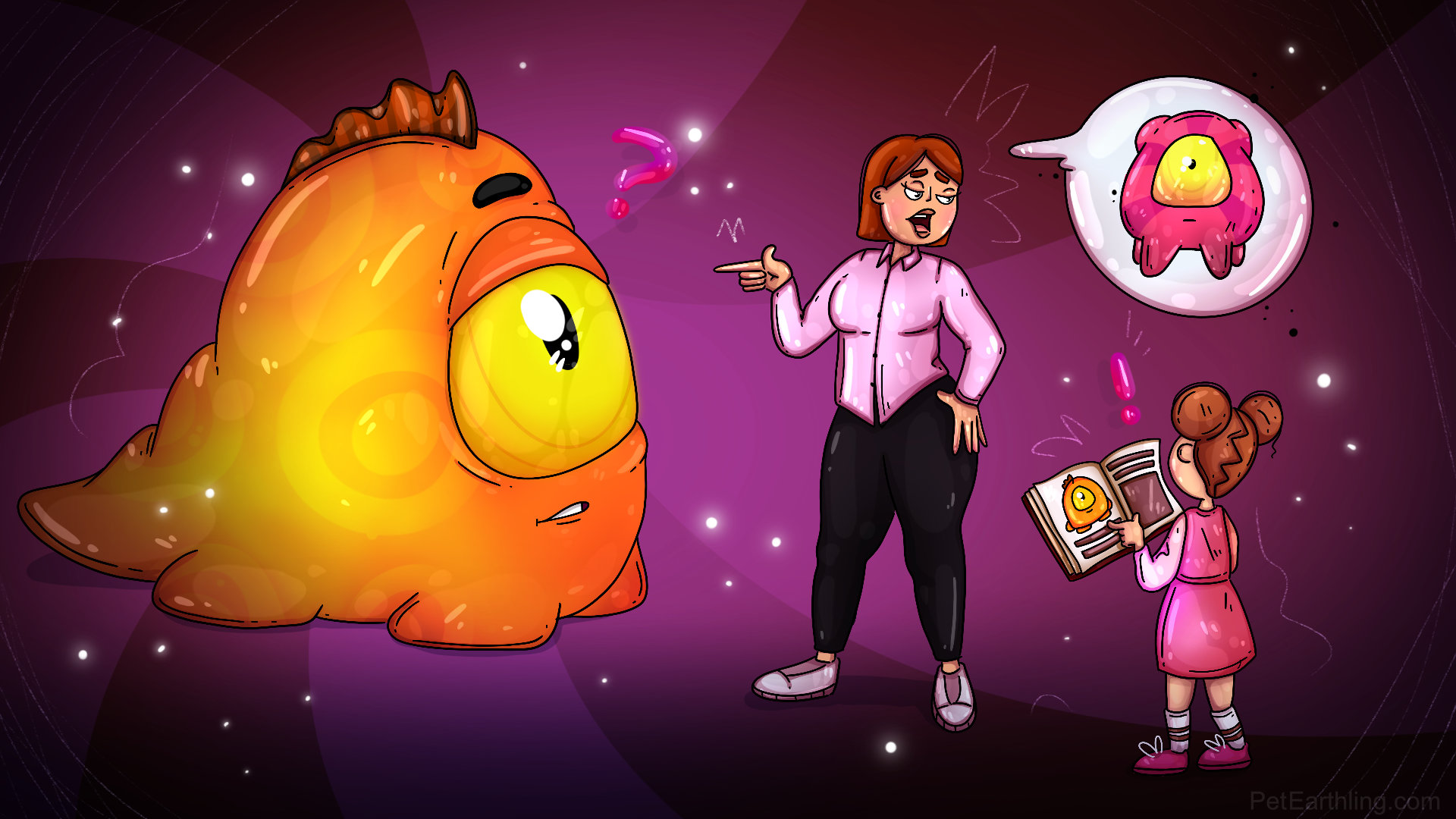
Whatever guesses they make, they have no need for
evidence because they already feel they are correct,
therefore they have nothing to gain, and it could only prove them wrong.
evidence because they already feel they are correct,
therefore they have nothing to gain, and it could only prove them wrong.
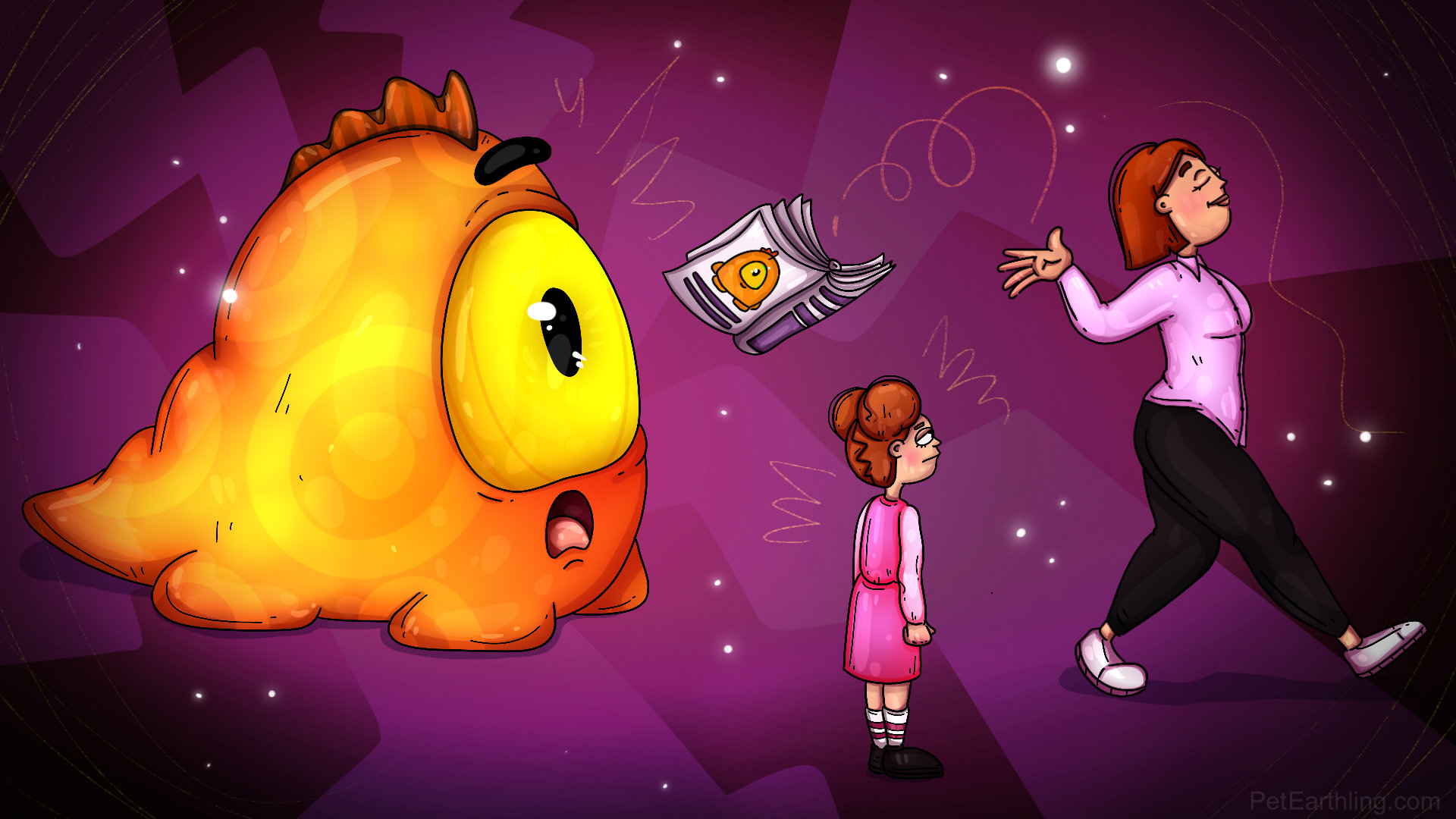
Another fascinating adaptation is how earthlings can
make their brains appear larger by making up answers.
make their brains appear larger by making up answers.
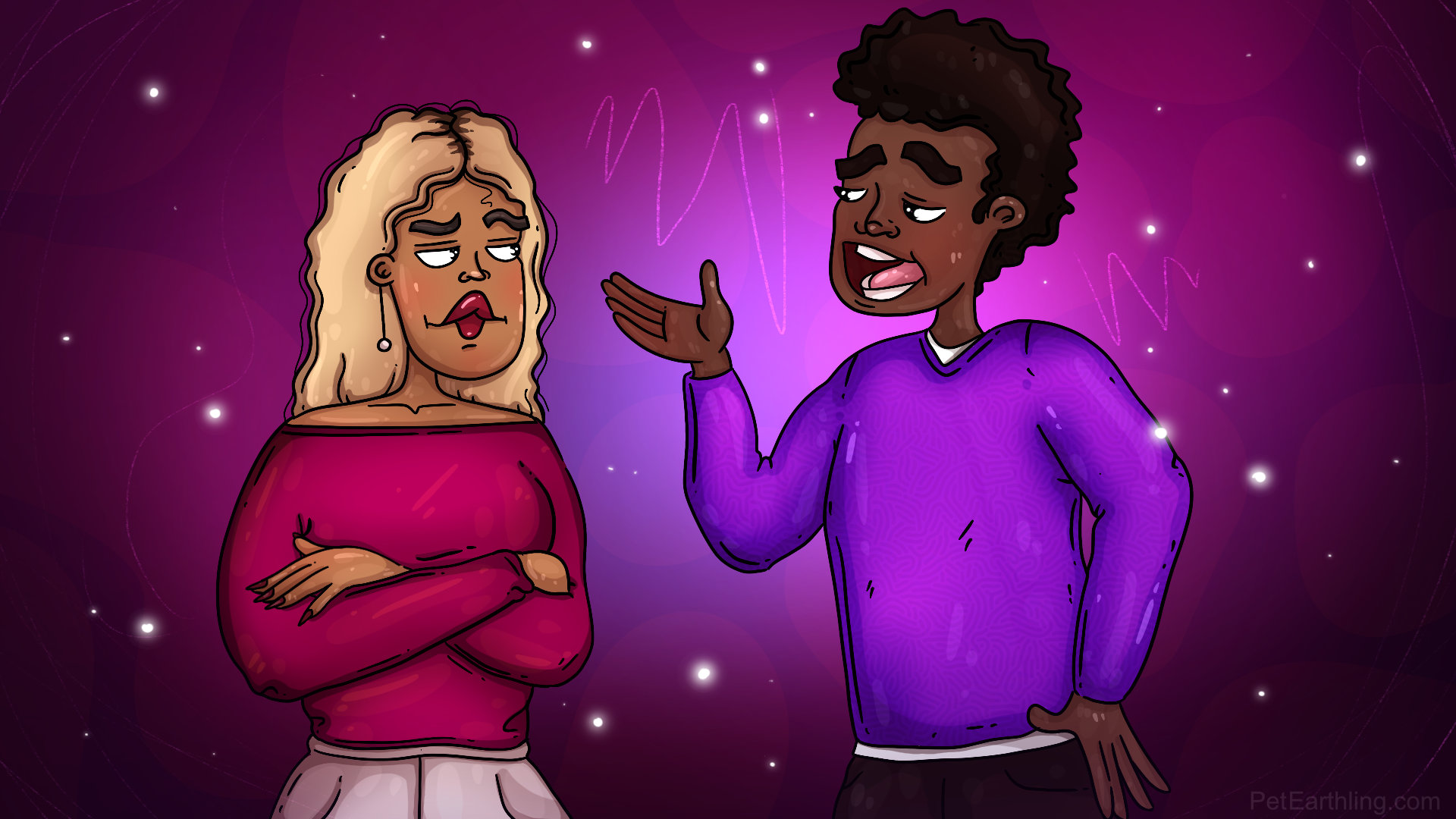
They may look at a complex problem like politics
and declare that the solution is actually simple.
and declare that the solution is actually simple.
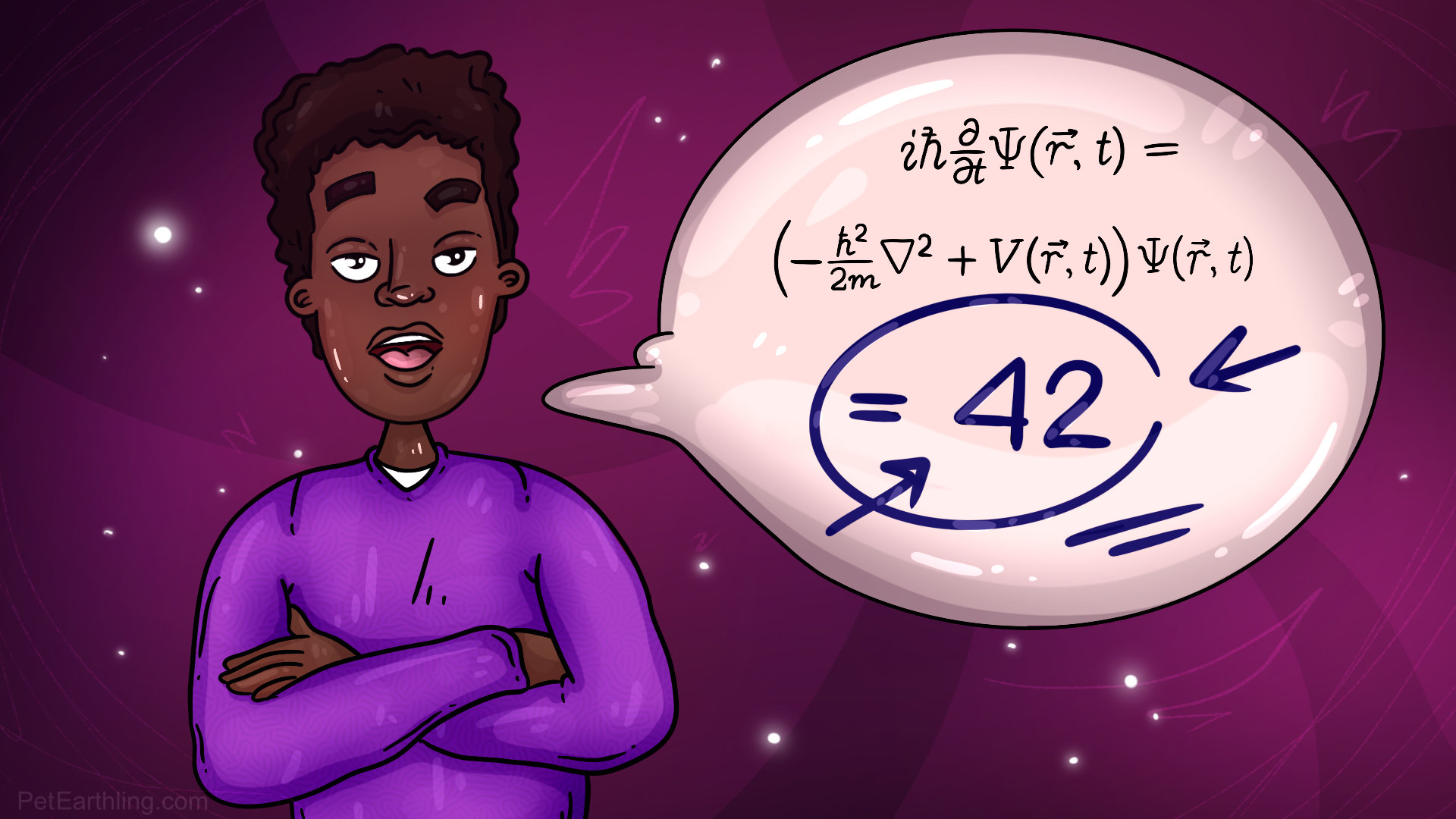
Or they may look at a simple activity
like breathing and say the technique
is actually complex.
By designing a
non-obvious
answer, even a
false answer,
they establish
themselves in
an elite few
who know
something that
most others do
not, releasing
pleasing
hormones
of superiority.
like breathing and say the technique
is actually complex.
By designing a
non-obvious
answer, even a
false answer,
they establish
themselves in
an elite few
who know
something that
most others do
not, releasing
pleasing
hormones
of superiority.
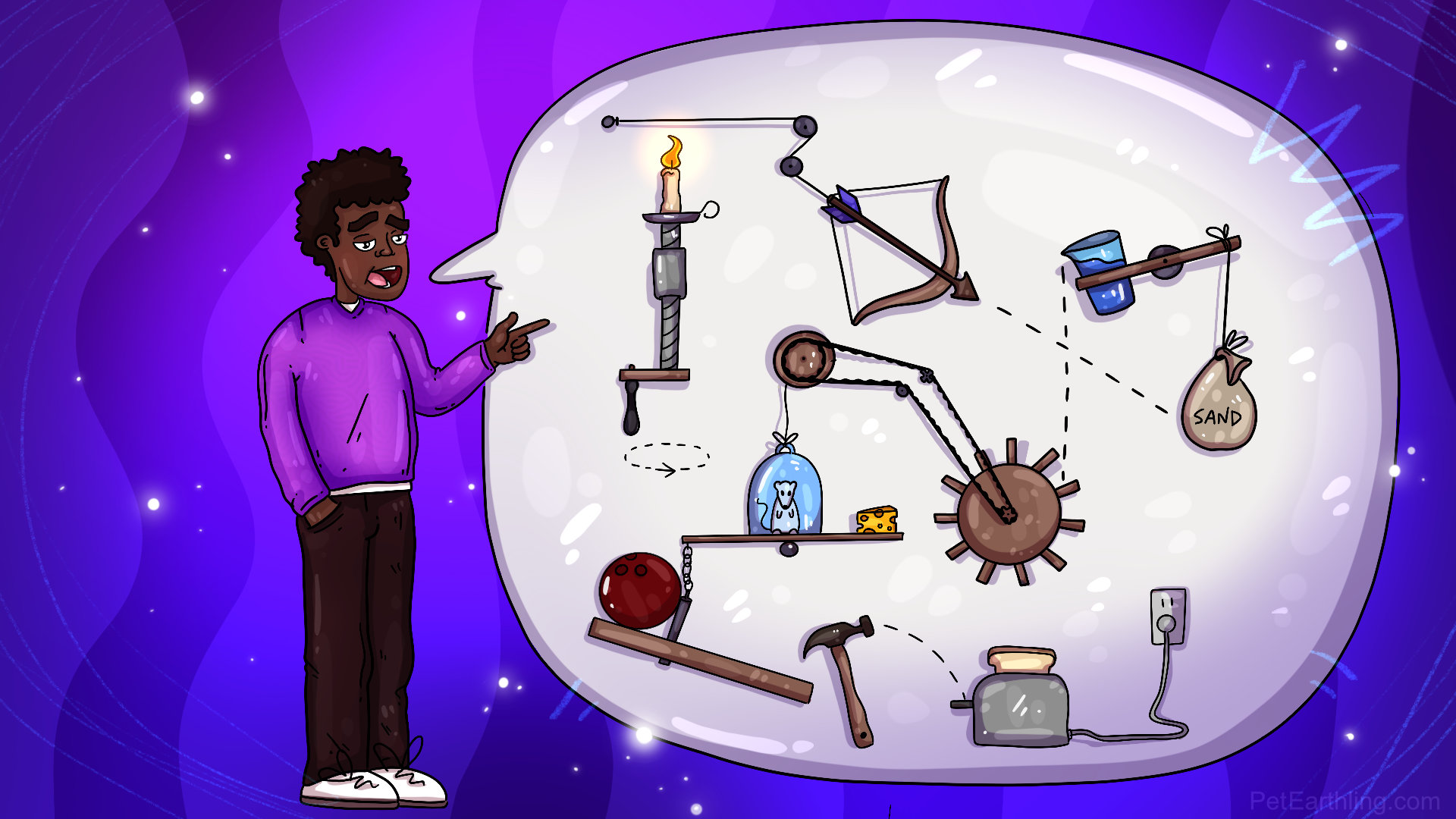
So to help your pet earthlings stay happy,
resist any urge to correct their misconceptions,
and just agree with them on everything.
resist any urge to correct their misconceptions,
and just agree with them on everything.
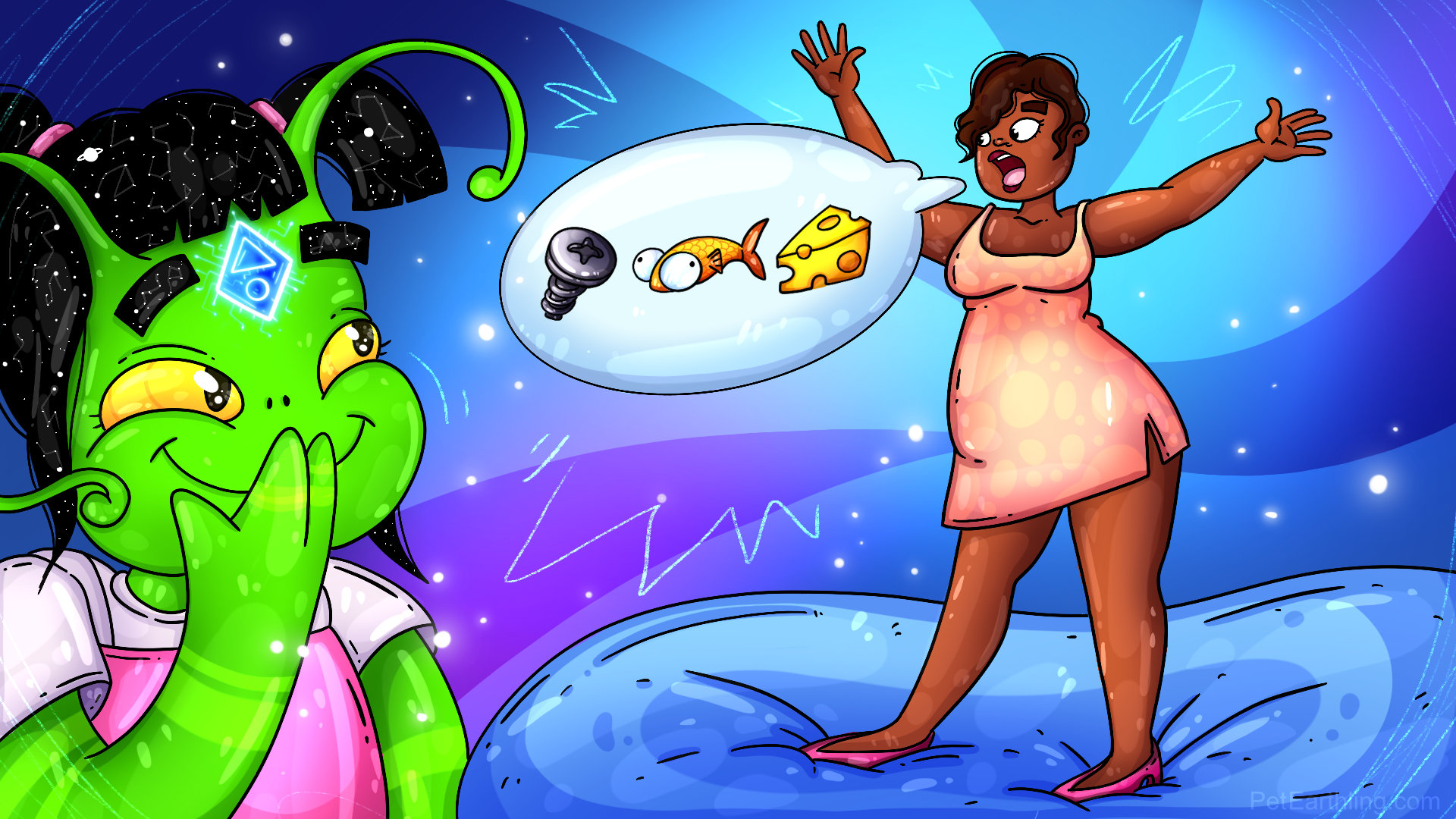
Next Chapter
Comment
Next Chapter
Comment
© 2021 Hans Ness
If you believe the earth is flat, you are choosing to trust certain conspiracy websites, and your eyes (the earth looks flat), and your senses (you cannot feel it spinning at 1000 mph or orbiting at 67,000 mph). But if you believe the earth is round, that’s a choice too. Unless you have been to space firsthand, you cannot actually prove the photographic evidence is not an elaborate conspiracy. And you probably cannot explain exactly how the star positions prove the earth’s movement, or the math necessary to prove it. So instead you make a choice to trust the scientists and teachers and books and photos and videos.
Any fact can be questioned and doubted, so ultimately all that matters within the confines of your mortal mind is what you choose to believe is fact. That makes it easy and tempting to choose to believe you are better than average, or even the most awesomist at something. Some evidence will support that, and some will not, so you pick and choose.
Research shows most people overestimate themselves, and that this sort of positivity is a good thing . . . if not overdone. Our inflated confidence powers our ambition to face challenges, while the cold realistic probability of failure would keep us planted on our couches.
But of course there’s inflated and then there’s overinflated. People easily get entrenched in dogma, because at some point it is too painful to reverse longheld beliefs. For any given topic, our ego rarely lets us admit that we made a huge mistake and have been wrong for years. So instead we double-down and argue even more fiercely, like a cornered raccoon hopped up on corn syrup.
Ego also explains why so many people believe conspiracy and crackpot theories. It’s a much easier choice to accept the established facts, so why would anyone choose a belief that makes them the target of scathing insults and arguments? Answer: ego. If you choose the mainstream belief, then you’re just part of the herd, nothing special. But if you believe a conspiracy/crackpot theory, then you feel like you’re one of an elite few who know a profound truth, an independent thinker smarter than all the gullible sheeple. (Wanting explanations and control may also be bait for certain types of theories, but a thirsty ego is the universal ingredient in all of them.)
Beliefs can also get baked into our identity, like “I am a vegan social justice warrior” or “I am a patriotic anti-vaxxer” or “I am a great karaoke singer”. If you change your beliefs, you have to change part of your identity too, which is about as difficult as face transplant surgery. So keeping your beliefs is the easier path of least resistance.
These reasons are why it’s usually counter-productive to debate politics, religion, conspiracies, or whether Marvel or D.C. comics are better.
Also humans are born with no innate ability to distinguish fact from opinion. A young kid can argue firmly that red is the best color without any concept of evidence or proof. And this fallacy continues into adulthood: “I know it in my heart” is the supposed evidence for so many arguments. If you have already accepted opinion as fact, there is no benefit to seeking evidence: at worst you risk proving yourself wrong, and at best it changes nothing, so why risk it?
“They may look at a complex problem like politics and declare that the solution is actually simple.”
People prefer simple answers over overwhelming complexity, so it’s an especially easy way for politicians to make a broad appeal.
“Or they may look at a simple activity like breathing and say the technique is actually complex.”
I’ve heard singing coaches and yogis declare so much misinformation about the lungs and diaphragm. Apparently saying “bigger breath” doesn’t make you sound like an expert, but a much more complex explanation makes a more convincing sales pitch.
Please comment to help me refine/expand this draft.